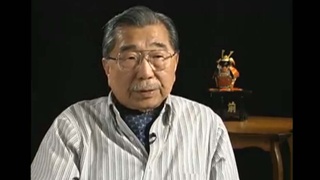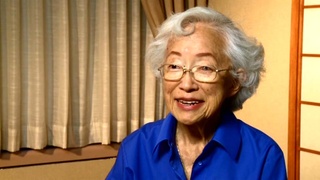Interviews
His experiences in Chicago after WWII
I don’t recall any real discrimination. So, Chicago was pretty good in that sense. And at school, I didn’t sense anything. There were a fair number of Japanese in the school. I’m not exactly sure why, but when the Japanese went to Chicago, they tended to cluster to just maybe for some kind of a feeling of ease that they went together. So, at this high school, there were a fair number of Japanese also.
Date: February 10, 2004
Location: California, US
Interviewer: Gwenn M. Jensen
Contributed by: Watase Media Arts Center, Japanese American National Museum.
Explore More Videos

Living conditions in prison while serving time for resisting the draft
(b. 1925) Draft resister

Talking to children about decision to resist the draft during World War II
(b. 1925) Draft resister

Reflecting on Japanese Americans' response to incarceration
(b. 1925) Draft resister


Thoughts on relationship between Japanese Peruvians and Japanese Americans at Crystal City, Texas
(1937 - 2021) Teacher

Father interrogated by FBI, but not taken away
(1925 - 2018) Nisei educator from Hawai‘i

The political effects on Nikkei during the war (Spanish)
(b. 1950) Nisei Chilean, Businessman

Government sold Japanese Canadian properties for little money
(b. 1928) Doctor. Former Chair of the Japanese Canadian Redress Foundation.

Questioning Curfew
(1918-2012) Fought the constitutionality of Executive Order 9066.

Challenges of finding a summer job
Judge, only Japanese American to serve on CWRIC.



Traumatic experiences before camp
(1913-2013) Doctor specializing in obstetrics in Southern California

“Everybody went in like sheep”
(1913-2013) Doctor specializing in obstetrics in Southern California

Discrimination for Nisei doctors
(1928–2016) Daughter of an Issei doctor
